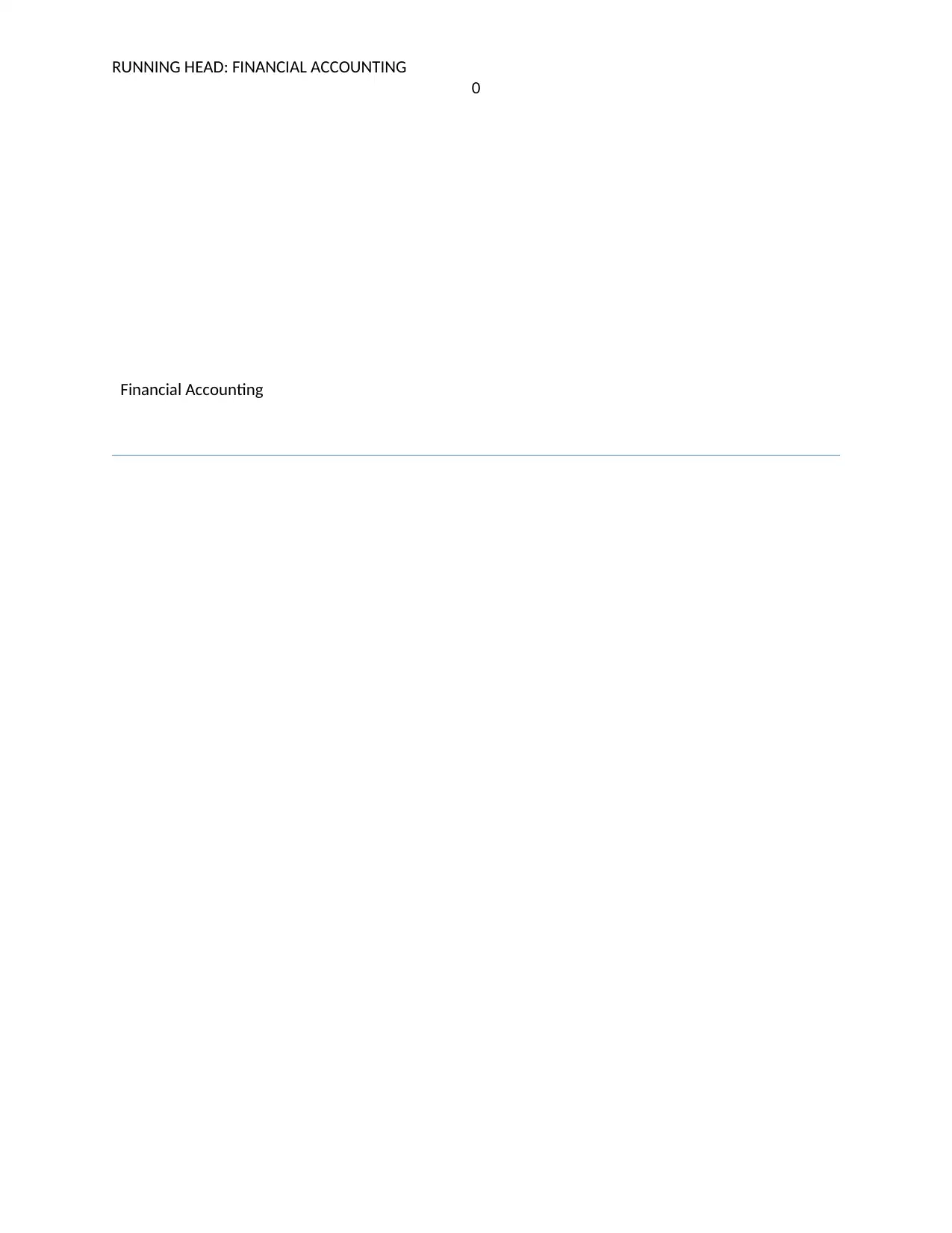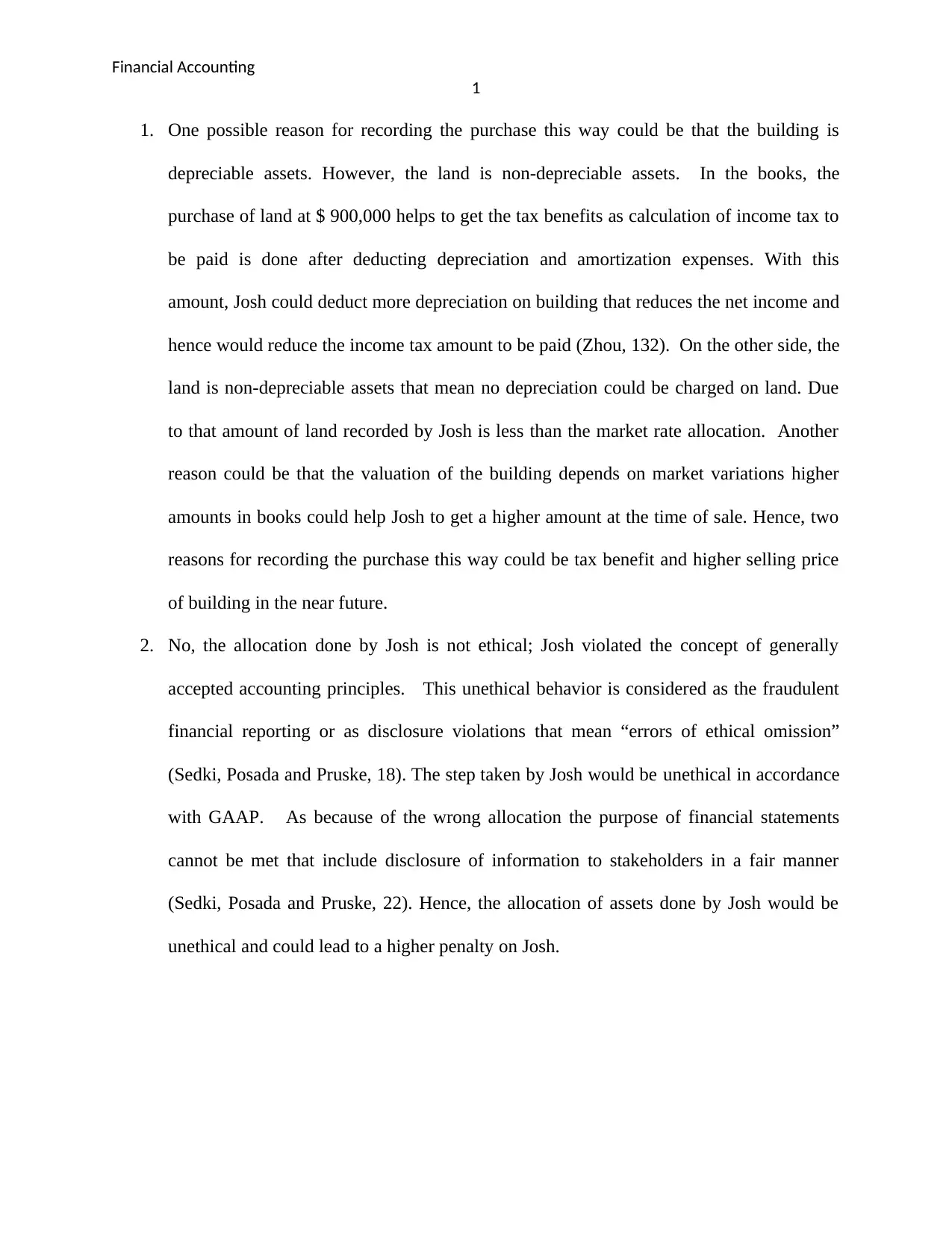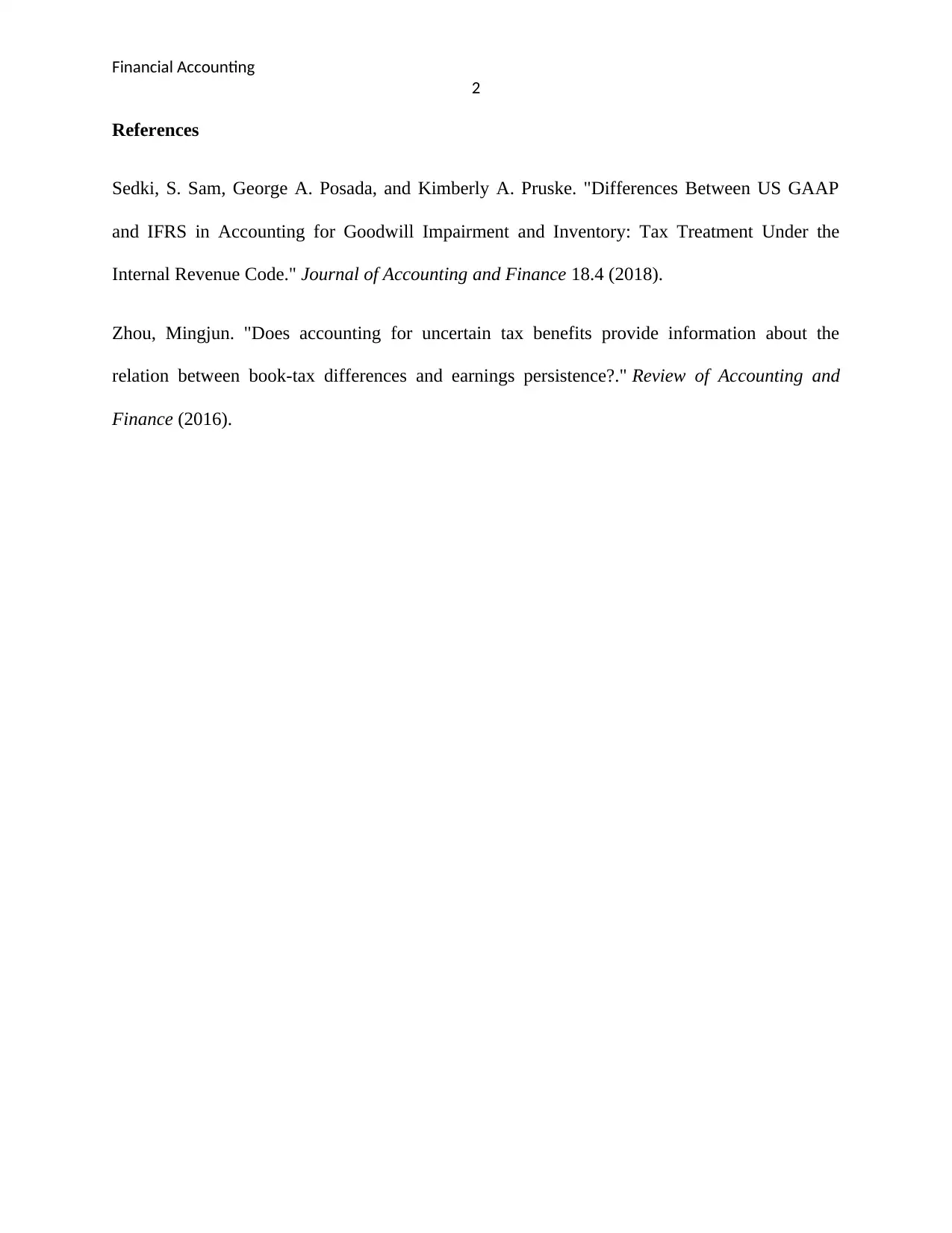Financial Accounting - Land and Building Allocation Analysis Report
VerifiedAdded on 2022/09/15
|3
|405
|15
Report
AI Summary
This report analyzes the financial accounting treatment of land and building allocation, specifically focusing on a scenario where a company, Josh, allocates the purchase price of a property between land and building. The report examines the potential reasons behind this allocation, such as tax benefits through depreciation of the building and the possibility of a higher future selling price. It then assesses the ethical implications of this allocation, highlighting that it violates Generally Accepted Accounting Principles (GAAP) and constitutes potential fraudulent financial reporting. The report concludes that the allocation is unethical as it distorts the true financial position and performance of the company, potentially leading to penalties. The analysis draws on concepts such as depreciation, tax benefits, and the importance of fair financial reporting, referencing scholarly articles to support its conclusions.
1 out of 3








![[object Object]](/_next/static/media/star-bottom.7253800d.svg)